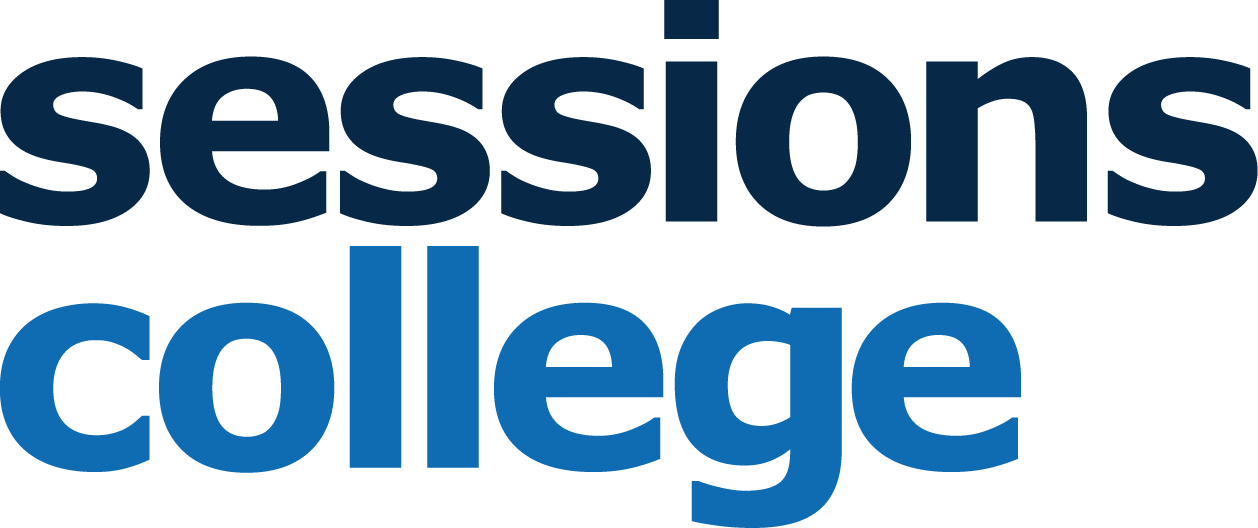How to Become a Medical Office Specialist in Nebraska

Want personalized recommendations?
Let's match you to the right program

A medical office specialist plays a crucial role in the healthcare industry by providing administrative support and ensuring smooth operations in medical offices. If you are interested in pursuing a career as a medical office specialist in Nebraska, here's what you need to know:
Article continues after recommendations
Recommended for you
What is a Medical Office Specialist?
A medical office specialist, also known as a medical administrative assistant or medical secretary, is responsible for various administrative tasks in a medical office setting. They are the backbone of the office, ensuring that everything runs smoothly and efficiently.
The responsibilities of a medical office specialist may include:
-
Greeting and checking in patients
-
Scheduling appointments and managing calendars
-
Handling phone calls and inquiries
-
Maintaining patient records and ensuring confidentiality
-
Processing insurance claims and billing
-
Managing inventory and ordering supplies
-
Assisting with basic medical procedures
-
Performing general office duties, such as filing and data entry
Where Does a Medical Office Specialist Work?
Medical office specialists can work in a variety of healthcare settings, including:
-
Hospitals
-
Medical clinics
-
Private practices
-
Rehabilitation centers
-
Nursing homes
-
Insurance companies
-
Pharmaceutical companies
Requirements to Become a Medical Office Specialist in Nebraska
To become a medical office specialist in Nebraska, you need to meet certain education and legal requirements. These may include:
-
Education: Most employers prefer candidates who have completed a medical office specialist training program. These programs are typically offered by vocational schools, community colleges, or online platforms like Dreambound. These programs provide comprehensive training in medical terminology, office procedures, computer skills, and other relevant topics.
-
Legal Requirements: While Nebraska does not have specific licensing or certification requirements for medical office specialists, some employers may prefer candidates who have obtained a certification such as Certified Medical Administrative Assistant (CMAA) or Certified Medical Secretary (CMS) from a recognized organization like the National Healthcareer Association (NHA) or the American Medical Technologists (AMT).
Where Can I Find Medical Office Specialist Classes in Nebraska?
If you're interested in pursuing a career as a medical office specialist in Nebraska, Dreambound is the largest platform for students to find and compare vocational training programs. Dreambound offers a comprehensive listing of medical office specialist classes in Nebraska, including options in Omaha. You can find more information and explore available programs here.
By utilizing Dreambound's platform, you can easily find classes near you and compare different programs to find the one that best fits your needs and schedule.
So, if you're ready to take the first step towards becoming a medical office specialist in Nebraska, start your journey with Dreambound today!
How do I get my Medical Office Specialist certification?
If you are interested in a career as a Medical Office Specialist, obtaining a certification can greatly enhance your job prospects and earning potential. A certification demonstrates to potential employers that you have the necessary skills and knowledge to excel in this role.
To obtain your Medical Office Specialist certification, you will need to complete a training program that covers the relevant topics and prepares you for the certification exam. These training programs are typically offered by vocational schools, community colleges, and online education platforms.
When choosing a training program, it is important to ensure that it is accredited by a recognized accrediting body. This ensures that the program meets certain standards of quality and that the certification you earn will be recognized by employers.
During your training program, you will learn about various topics related to medical office administration, including medical terminology, medical billing and coding, health insurance procedures, medical records management, and office management skills. You will also gain hands-on experience through practical exercises and internships.
Once you have completed your training program, you will be eligible to take the certification exam. The exam is typically administered by a professional organization, such as the American Association of Medical Assistants (AAMA) or the National Healthcareer Association (NHA). The exam assesses your knowledge and skills in areas such as medical office procedures, medical billing and coding, and medical terminology.
Passing the certification exam will earn you the title of Certified Medical Office Specialist (CMOS) or a similar designation. This certification will demonstrate to potential employers that you have the necessary skills and knowledge to perform effectively in a medical office setting.
Get courses selected just for you
Try our powerful search engine
Article continues after recommendations
How do I get a job as a Medical Office Specialist?
After obtaining your Medical Office Specialist certification, you will be ready to start your job search. Here are some steps you can take to increase your chances of securing a job as a Medical Office Specialist:
-
Update your resume: Highlight your certification and any relevant experience or skills you have gained during your training program. Tailor your resume to the specific requirements of each job you apply for.
-
Apply online: Many job openings for Medical Office Specialists are posted on online job boards. Create accounts on popular job search websites and set up email alerts to be notified of new job postings.
-
Network: Reach out to your classmates, instructors, and other professionals in the field. Attend local job fairs and industry events to meet potential employers and learn about job opportunities.
-
Utilize professional organizations: Join professional organizations such as the American Association of Medical Assistants or the Medical Group Management Association. These organizations often have job boards and can provide valuable networking opportunities.
-
Prepare for interviews: Research common interview questions for Medical Office Specialist positions and practice your responses. Be prepared to discuss your skills, experience, and why you are interested in the role.
-
Consider internships or volunteer work: If you are having difficulty finding a job, consider gaining experience through internships or volunteer work. This can help you build your resume and make valuable connections in the field.
Remember, the job market for Medical Office Specialists can be competitive, so it is important to be proactive in your job search and to differentiate yourself from other candidates.
Career Paths and Opportunities after Becoming a Medical Office Specialist
Becoming a Medical Office Specialist opens up a variety of career paths and opportunities. Here are some potential career paths you can pursue after obtaining your certification:
-
Medical Office Administrator: As a Medical Office Administrator, you will be responsible for overseeing the day-to-day operations of a medical office. This includes managing staff, coordinating patient appointments, handling billing and insurance claims, and maintaining medical records.
-
Medical Billing and Coding Specialist: In this role, you will be responsible for accurately coding and submitting medical claims to insurance companies. You will ensure that the medical codes used are correct and that all necessary information is included for timely reimbursement.
-
Medical Transcriptionist: As a Medical Transcriptionist, you will listen to recorded dictations from healthcare professionals and accurately transcribe them into written reports. These reports become part of the patient's medical record and are used by healthcare providers for patient care and documentation.
-
Medical Office Assistant: As a Medical Office Assistant, you will provide administrative support to healthcare professionals in a medical office setting. This may include scheduling appointments, managing patient records, maintaining inventory, and assisting with basic medical procedures.
-
Healthcare Customer Service Representative: In this role, you will interact with patients, insurance companies, and healthcare providers to resolve billing and insurance-related issues. You will ensure that patients understand their insurance coverage and assist with any billing inquiries.
-
Medical Records Technician: As a Medical Records Technician, you will be responsible for organizing and maintaining patient medical records. You will ensure that records are accurate, up-to-date, and stored securely. You may also be responsible for retrieving and delivering medical records as needed.
These are just a few examples of the career paths you can pursue as a Medical Office Specialist. Depending on your interests and career goals, there may be other opportunities available to you. It is important to stay updated on industry trends and advancements to maximize your career potential.
Final Thoughts
Obtaining your Medical Office Specialist certification can open up a world of opportunities in the healthcare industry. By completing a training program and passing the certification exam, you will have the necessary skills and knowledge to excel in this role.
When searching for a job, be proactive and utilize online job boards, networking opportunities, and professional organizations. Tailor your resume to each job application and prepare thoroughly for interviews.
Once you have secured a job as a Medical Office Specialist, there are various career paths you can explore, such as becoming a Medical Office Administrator, a Medical Billing and Coding Specialist, or a Medical Transcriptionist. Stay updated on industry trends and advancements to maximize your career potential.
With the right education, certification, and determination, you can embark on a rewarding career as a Medical Office Specialist in Nebraska or anywhere else in the country.
Certified Medical Office Specialist (CMOS)
American Association of Medical Assistants
Dreambound has you covered with a series of detailed guides, each designed for a different city. And if you're elsewhere or considering a move, we've got more guides that might fit your needs.
- Medical Office classes near me in Baltimore
- Medical Office classes near me in Houston
- Medical Office classes near me in Louisville/Jefferson County
- Medical Office classes near me in Orlando
- Medical Office classes near me in Spokane
Exploring diverse professional options? Dreambound has comprehensive guides to assist you in making well-informed decisions. Take a look at these resources:

Athena is Co-founder and CEO of Dreambound.



